
Clinical pearls, or little bits of useful information, can come in handy whether you’re a med student or a practicing clinician. We asked the Figure 1 community for their most valued clinical pearls — either passed on to them or that they share with others — and received hundreds of responses.
Here are just some of the words of wisdom the community shared.
Don’t Forget …
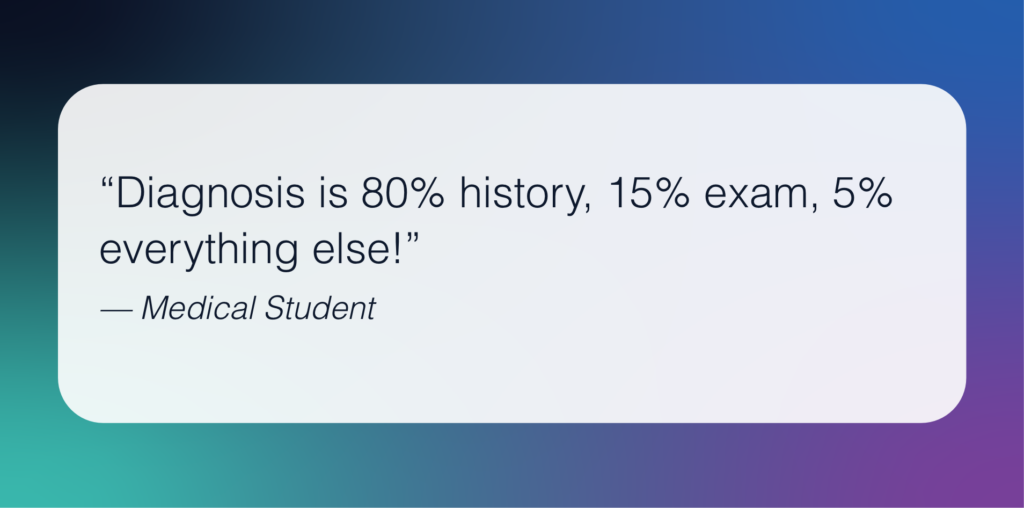
“Taking a good history and never ignore PE, because it’s the key to any Dx.”
– Medical Student
“With any constellation of symptoms, always consider the following on your differential: lymphoma, TB, sarcoidosis.”
– Medical Student
“Diagnosis is 80% history, 15% exam, 5% everything else!”
– Medical Student
“Uncommon presentations of common diseases are much more likely that uncommon diseases.”
– Medical Student
“A kid presenting with non-specific and vague symptoms? Let’s do a rapid strep test.”
– Medical Student
“No pain in a kid is ‘normal.’ Always double check when it comes to children and pain.”
– Medical Student
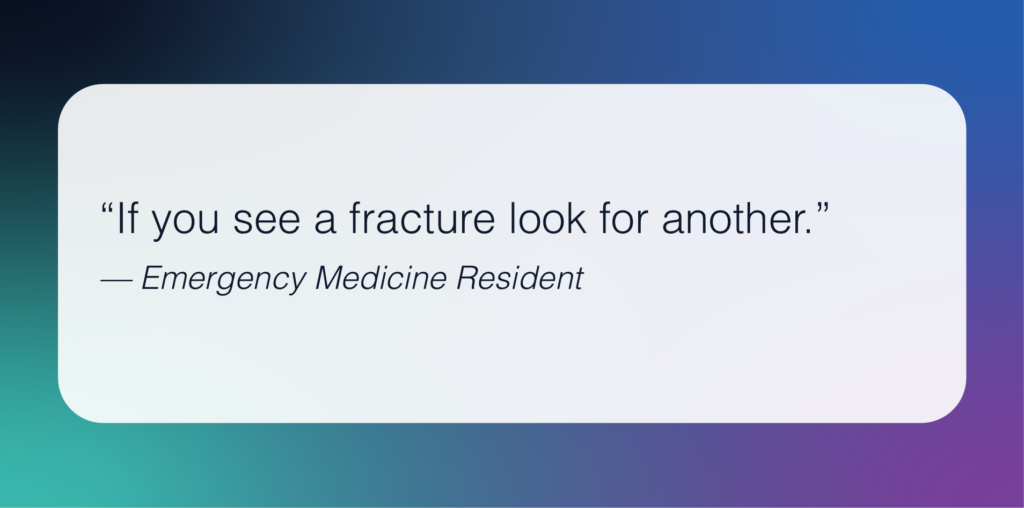
“When examining hands, always examine the opposite normal side! Easy tip but countless normal variants identified.”
– Plastic Surgery Resident
“In trauma patients, be wary of distracting injuries. Even if their foot is hanging off, always go through the ABCs first!”
– Medical Resident
“If you see a fracture look for another.”
– Emergency Medicine Resident
“Generalized pruritus in a long-time diabetic with no clear explanation warrants kidney function tests.”
– Medical Student
“Epigastric pain in a diabetic patient is possible acute MI until proven otherwise.”
– Cardiology Resident
“Always quantify a complaint of shortness of breath.”
– Medical Student
“Left ventricle is most commonly involved in myocardial infarction unless proven otherwise.”
– Medical Student
“The problem with a flail chest ISN’T the fact that that segment wouldn’t take part in the bucket handle movement IT’S THE UNDERLYING PULMONARY CONTUSION.”
– Medical Student
“Painless hematuria in 50-year-old and more male is bladder carcinoma unless proven otherwise.”
– Medical Student
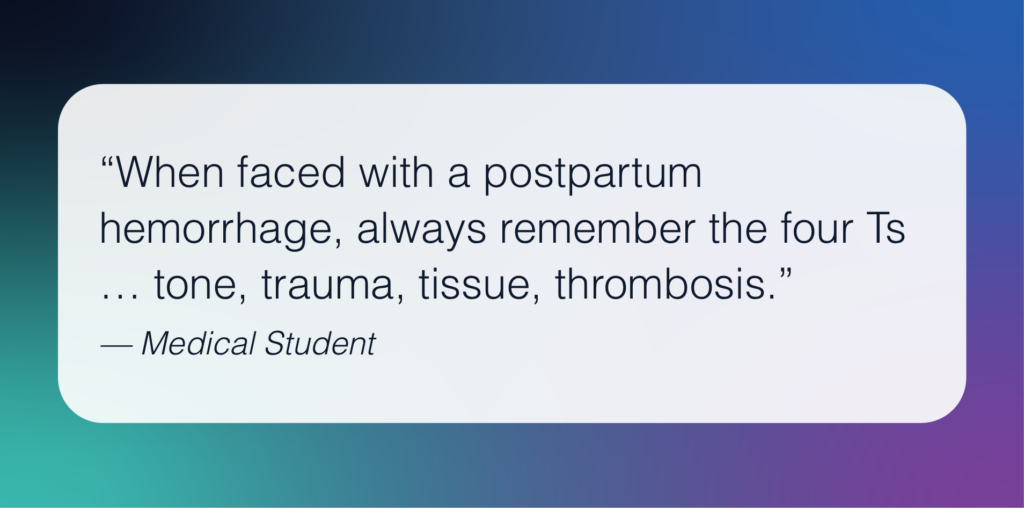
“At every OBGYN rotation: A woman is pregnant until proven otherwise.”
– Medical Student
“Any women of reproductive age, always check beta hcg.”
– Internal Medicine Physician
“Make sure to get a bHCG before ordering imaging on any woman of child-bearing age with abdominal pain.”
– Medical Student
“When faced with a postpartum hemorrhage, always remember the four Ts to quickly help you narrow down the cause: tone, trauma, tissue, thrombosis.”
– Medical Student
“Gastroesophageal-reflux disease is the second most common cause of chronic cough.”
– Otolaryngology Resident
“When it comes to medications, start low and go slow. And don’t make too many changes at one time, then you don’t have a clear cause and effect!”
– Pharmacist
“Have an elderly patient with ‘delirium?’ Check the med list! Polypharmacy is one of the leading causes of delirium in the elderly population.” – Medical Student
“Magnesium decreases urinary loss of potassium. In hypokalemic patients (low potassium), remember to check the levels of magnesium.”
– Family Medicine Resident
Take Your Time
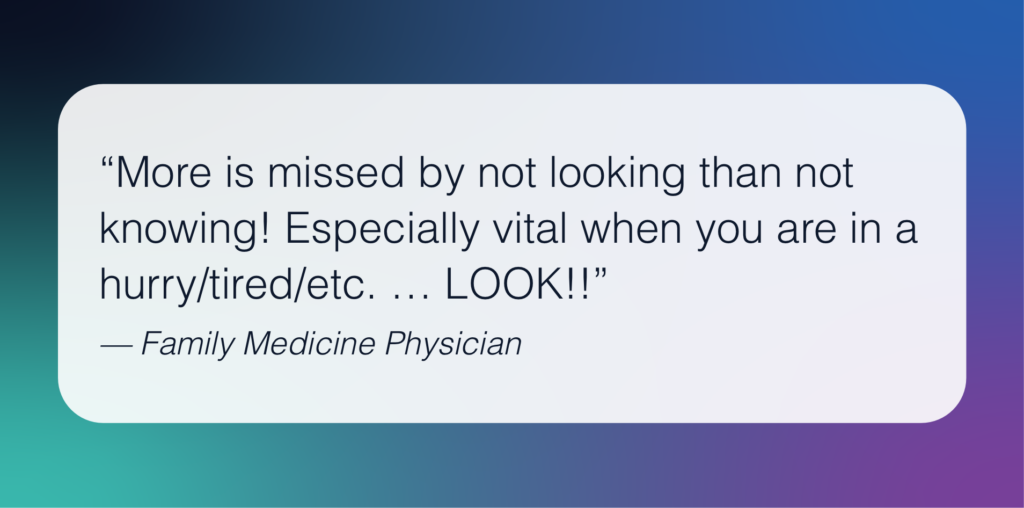
“Always check the medication three times before administration: once when choosing it from stock, once when drawing it up, and once before putting it into the patient’s body.”
– Medical Educator
“It is often the second mistake, made in haste of fixing the first, where the fatal damage is done.”
– Emergency Medicine Resident
“More is missed by not looking than not knowing! Especially vital when you are in a hurry/tired/etc. … LOOK!!”
– Family Medicine Physician
Ask Questions
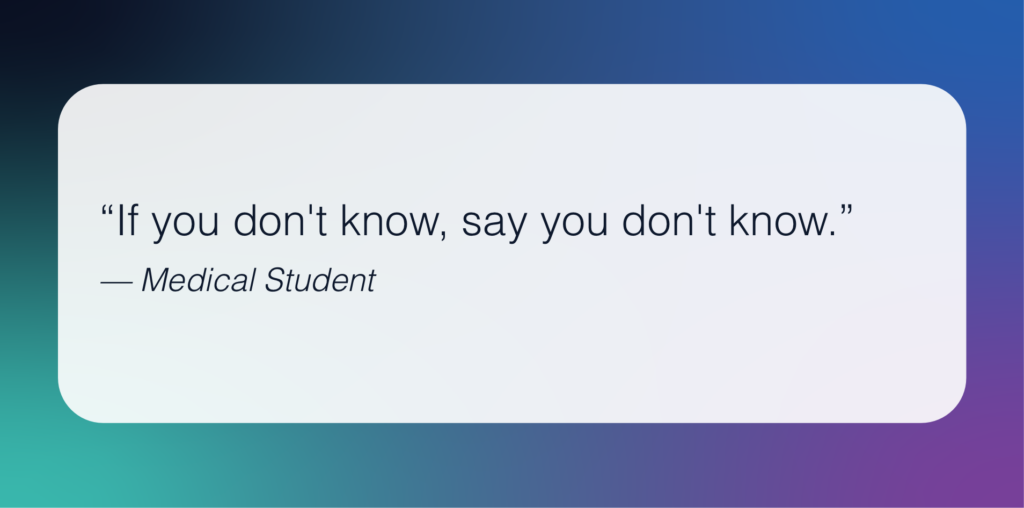
“There is no dumb question. It’s dumb not to question.”
– Registered Nurse
“If you don’t know, say you don’t know.”
– Medical Student
“Whenever imaging is ordered, a test obtained, or management changes, ask yourself, ‘Why?’ Understanding ‘why’ will increase the learning value of the case … [and help] improve your future decision-making.”
– Internal Medicine Resident
Work as a Team
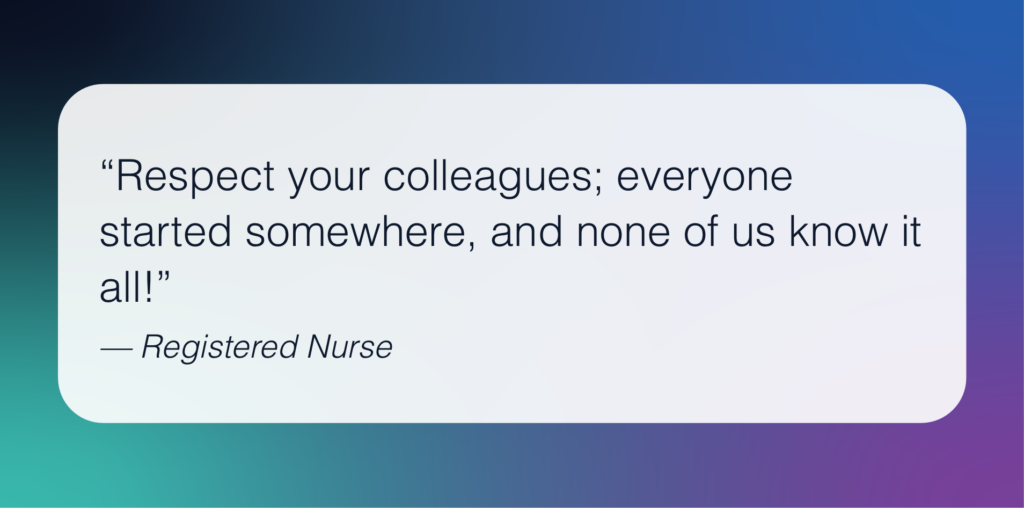
“Get help from the older medical students; they know what it’s like to be flustered on the wards.”
– Medical Student
“’In a house, the foundation matters more than the roof’: A good relationship between you as a doctor and the nurse will always perfect your skills and give best results.”
– Medical Student
“When you start off as a young medical student or a doctor, there will be nurses that will know more than you, healthcare assistants that work harder, and therapists that are more practical. Never see any other health professional as something lower down the food chain because we all have the same objective. To save the patient.”
– Medical Student
“As a medical student shadowing in the OR, introduce yourself to everybody in the room (at an appropriate time), especially the nurses. You’ll not only learn more, but it’s the polite thing to do.”
– Medical Student
“Respect your colleagues; everyone started somewhere, and none of us know it all!”
– Registered Nurse
Listen to Patients
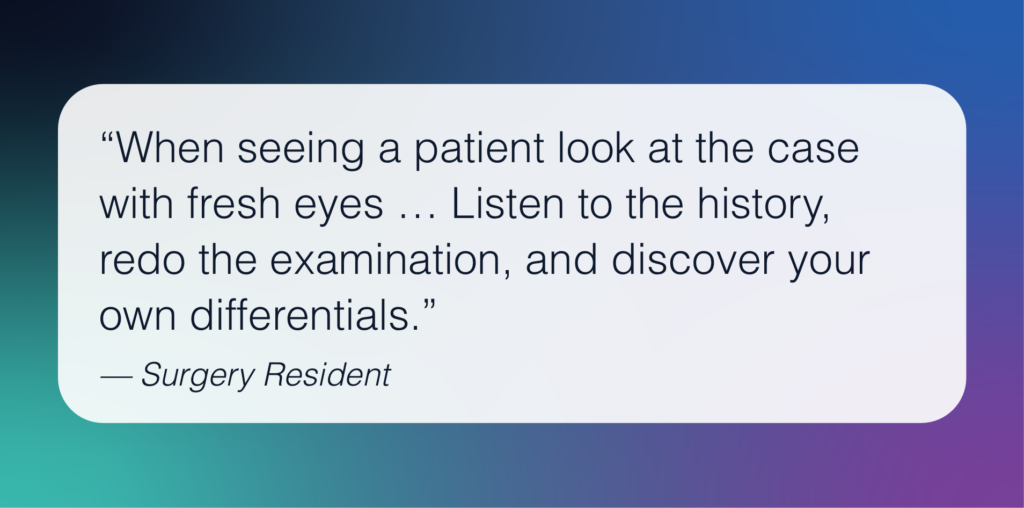
“Don’t mindlessly treat numbers on a lab report. Look at the whole picture and listen to the patient. They know themselves way better than we do.”
– Internal Medicine Physician
“Sometimes there can be a disconnect between what the doctor thinks the patient wants and what the patient really wants. It usually doesn’t hurt to ask what the patient is hoping for!”
– Internal Medicine Resident
“When seeing a patient look at the case with fresh eyes, don’t come in with preconceived ideas about what is going on. Listen to the history, redo the examination, and discover your own differentials.”
– Surgery Resident
Patient Care is More Than Medicine
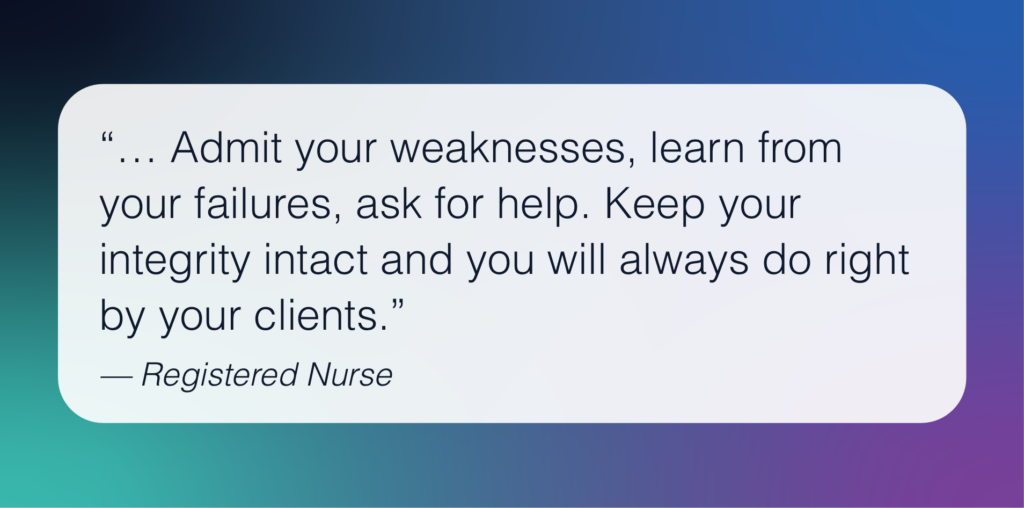
“You treat a disease, you win, you lose. You treat a person, I guarantee you, you’ll win, no matter what the outcome.”
– Cardiology Resident
“It’s not always how much you know that makes you a good doctor. It’s also how much you care about the patient in front of you. To be a good doctor, you need to know how to behave.”
– Medical Student
“Medicine is an endless ocean. There are many ways to keep track of which way you need to go; however, you always need to have one standard: patience.”
– Medical Student
“Never forget three simple words ‘Primum non nocere’ (First do no harm). If you always think about those words in your medical career, you’ll always give the best support to your patients.”
– Family Medicine Resident
“The only thing you truly have is your integrity. Admit your weaknesses, learn from your failures, ask for help. Keep your integrity intact and you will always do right by your clients.”
– Registered Nurse
Published July 11, 2023
Join the Conversation
Sign up for Figure 1 and be part of a global community of healthcare professionals gaining medical knowledge, securely sharing real patient cases, and improving outcomes.


